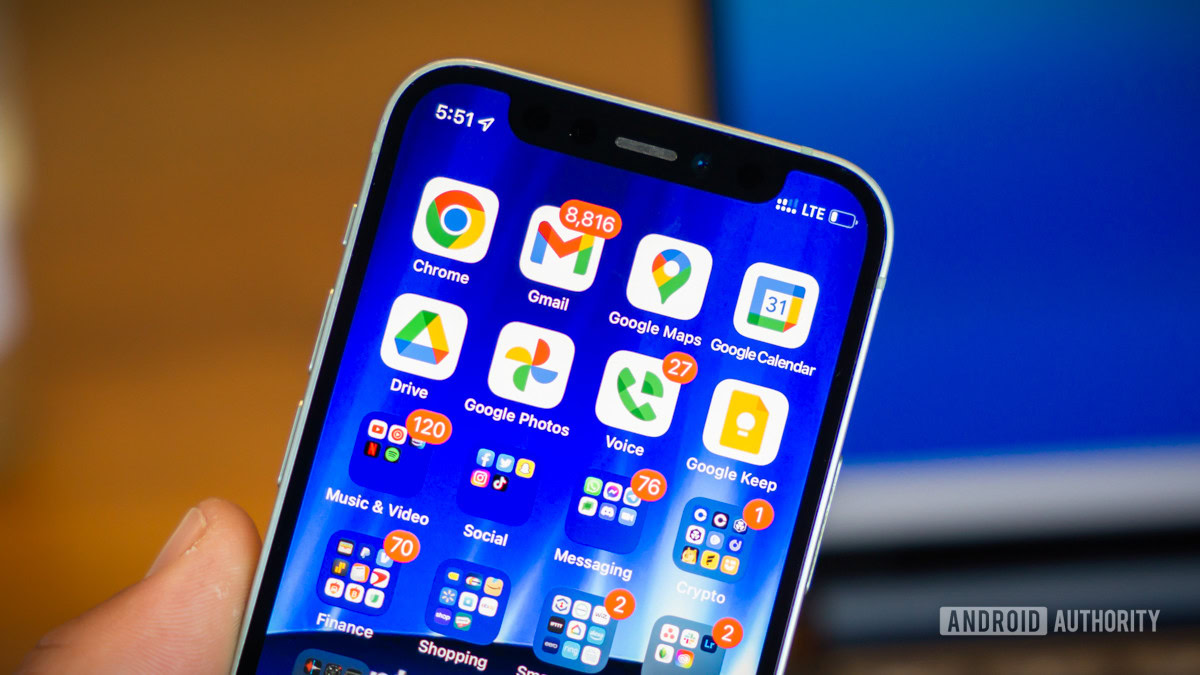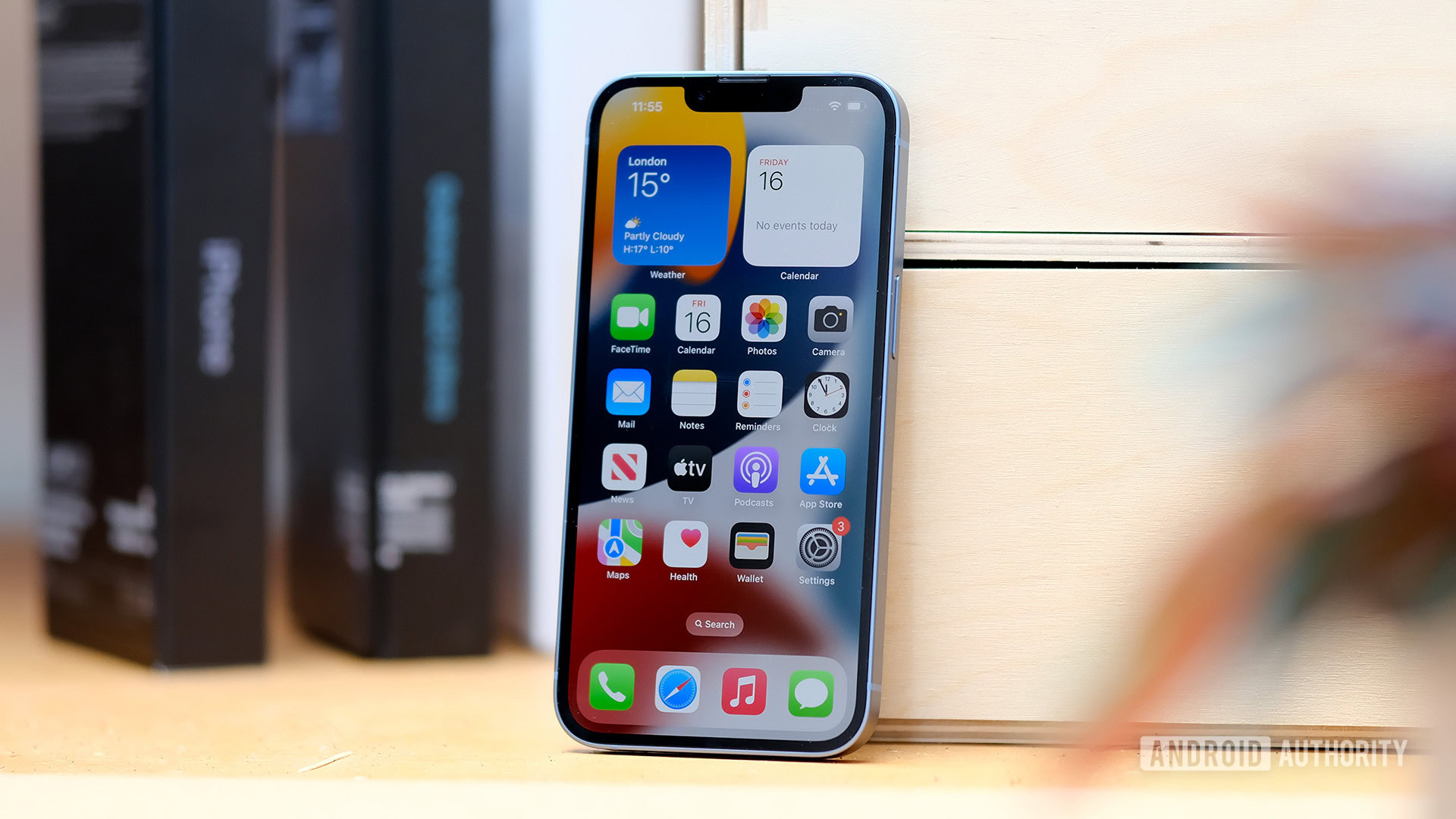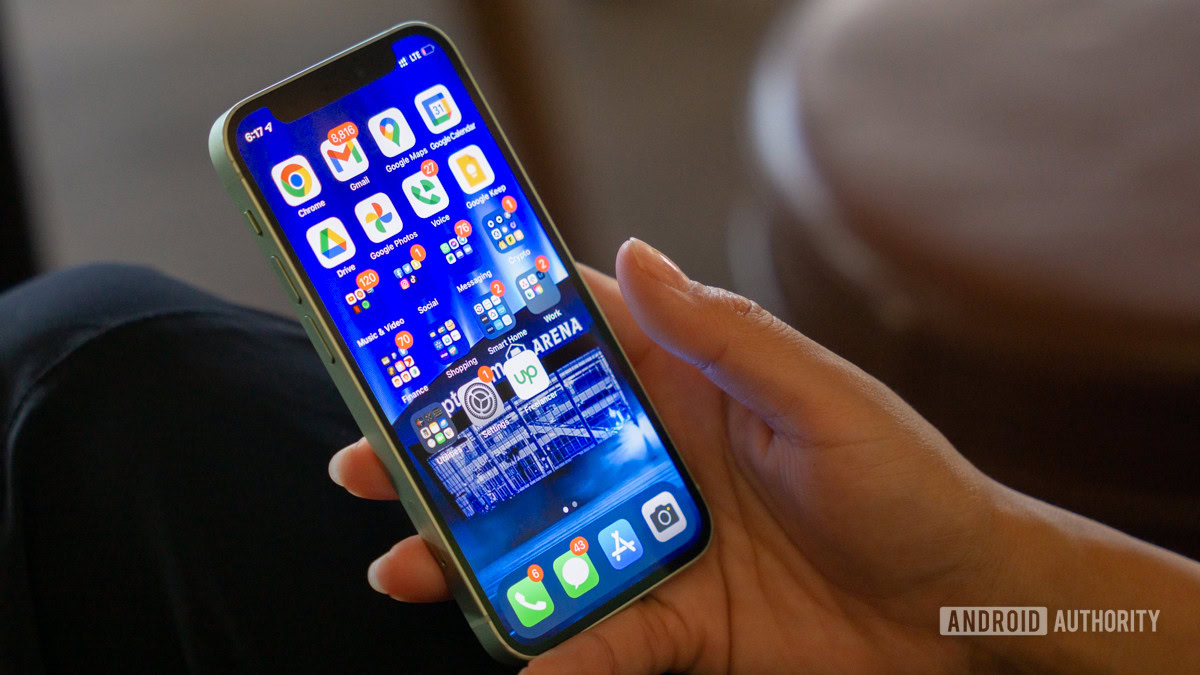Affiliate links on Android Authority may earn us a commission. Learn more.
Is the iPhone 14 waterproof? Does it have an IP rating?
June 28, 2023

It’s likely that you’ve learned by now that electronics and water don’t mix, so the question of the iPhone being waterproof might seem superfluous. But there’s actually a little more to the story than a simple IP rating or a quick yes or no answer. So before you drop your iPhone 14 into a pool, it’s best to find out just how waterproof it actually is and what that means for your device’s survival. Here’s what you need to know about the iPhone 14’s water resistance and IP rating.
QUICK ANSWER
The iPhone 14 series is water-resistant and not completely waterproof. All four phones in the series have an IP68 rating. They can survive being submerged in up to 6 meters deep for up to 30 minutes. However, note that water damage is not covered under warranty, so we advise not to get your phone submerged.
Is the iPhone 14 waterproof?

People toss the word “waterproof” around a lot, but the iPhone 14 is not actually waterproof; it’s water-resistant. That might seem like splitting hairs, but it is an important distinction. Technically, the iPhone 14 has an IP68 rating. That means it can survive a plunge into fresh water up to six meters deep for a maximum of 30 minutes. This IP rating for water and dust resistance is applicable to the iPhone 14, iPhone 14 Plus, iPhone 14 Pro, and iPhone 14 Pro Max.
IP68 rating on the iPhone 14 explained
The iPhone 14 is IP68 rated. The first digit denotes the level of dust resistance, while the second digit denotes the level of water resistance.
The first position “6” indicates the level of protection against dust, and it is the highest rating for dust resistance. It means the device is protected from total dust ingress.
The second position “8” denotes the level of protection against water. It is a high level of resistance, and it certifies that the device is protected from a longer duration of freshwater immersion up to a specific depth. Apple defines this depth to be up to six meters (~19 feet) and the duration to be up to 30 minutes.
Word of caution for iPhone 14 users
Water resistance is not a permanent condition. A few days of normal use can even render it practically meaningless. Also, note that Apple only claims resistance to fresh water. Salt water, like the ocean, can and will damage your phone severely.
Apple does not cover water damage as part of an iPhone's warranty.
An important thing to remember is that Apple does not cover water damage as part of its warranty, and if you have AppleCare Plus, repairing water damage will use up one of your two yearly slots. If you do drop your phone into a fish tank, get ready to pay out of pocket to fix it if you don’t have AppleCare Plus.
All of this is to say you’re better off avoiding getting your phone wet, to begin with. If it does get wet, you should dry it off immediately and then take further steps to fix the water damage. If water has entered the Lightning port, the iPhone 14 will also refuse to charge until all moisture has evaporated from the port. We recommend leaving the phone out to dry, and strongly advise against using a hair dryer or other heating device to hasten the process. For obvious reasons, we also strongly advise against attempting to charge your phone while it is still wet. Be patient and wait it out.
Are any iPhones waterproof?

No iPhone (or any other phone for that matter) is technically waterproof; as mentioned, they’re water-resistant. A waterproof phone would be totally sealed and could withstand extended contact with water or deep submersion. No iPhone can do that. And just as with any other phone, the water resistance of an iPhone degrades over time and with normal use, sometimes quite rapidly. The first iPhone to have an IP68 rating was the iPhone 11. Since then, Apple claims this rating applies to successive models. However, if your old iPhone has been around for years, chances are it’s no longer water-resistant at all.
Water resistance ratings are not permanent and even normal use can degrade them quickly
That’s because achieving a tight water-resistance rating means using lots of glue and packing in components as closely as possible. As you use your phone or even drop it, bump it, and do the things people normally do with smartphones, the glue degrades, components can shift, and spaces open up for water to get in and cause problems. Your iPhone is not a completely sealed device, so it’s not waterproof. Every iPhone has Lightning ports, camera lenses, speakers, microphones, and other openings that readily let in water. Once a phone’s tightly packed and glued interior is no longer factory-new, water can get in through any of these openings.
This goes for other forms of contact with water and liquids as well. For example, using your iPhone’s touchscreen with wet hands is something to avoid. And try to keep it out of the rain or snow, too.
Frequently asked questions about the iPhone 14’s water resistance
To make your iPhone truly waterproof — as in totally sealed against moisture — you will need a waterproof phone case that fits your iPhone. Sealed cases, in essence, give you access to a phone’s touchscreen through some sort of window and keep everything else well away from water.
And a big caveat still applies here: there is always a chance water could make it in any way. The smallest rip or hole in any waterproof phone case could cause water to come pouring in. Furthermore, cases are just like phones in that using them will degrade their water resistance over time. When in doubt, avoiding getting your iPhone anywhere near water is best.
Not exactly. There are apps that claim they test your phone’s water resistance rating by using its barometer and other metrics, but we can’t say if these actually work. Needless to say, we don’t recommend dropping your phone into a sink to test its water resistance rating either.
You can take your iPhone 14 in the shower as it is IP68 rated. However, we recommend against it, as repeated exposure to moisture and accidental exposure to chemicals in soaps and shampoos have the potential to damage your phone.
The iPhone 14 is IP68 rated for freshwater only. You can theoretically use it for quick photos in a swimming pool; however, we advise against doing so. IP ratings are not guarantees, and any water damage is not covered under warranty. You will still be risking your device.
The iPhone 14 series is not rated for salt water/seawater immersion at all. Do not immerse it in seawater, as this will cause severe internal corrosion and damage.
No iPhone is fully waterproof. Recent iPhones are merely water-resistant. These resistance values are not guarantees.